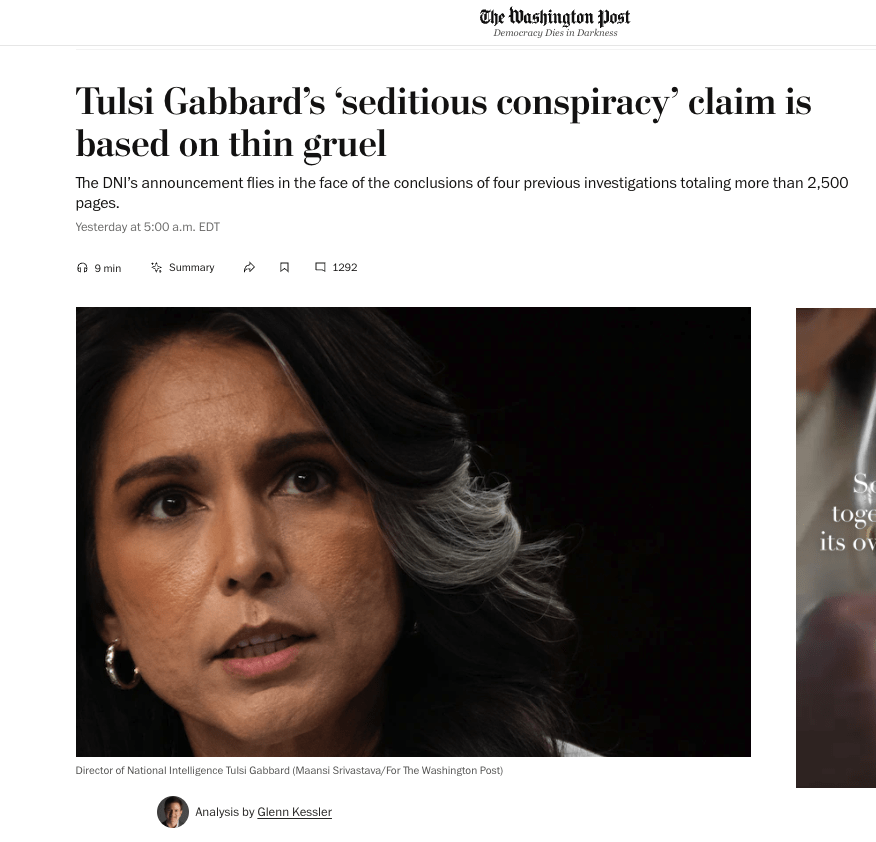In his latest “fact-check,” Glenn Kessler defends the intelligence community’s claim that Vladimir Putin personally sought to help Donald Trump win in 2016—not as a politically motivated conclusion, but as the inevitable result of “careful investigative work.”
Kessler writes:
“Why did the intelligence community become more convinced that Putin directed the effort to swing the election to Trump, instead of just seeking to inject turmoil in the U.S. elections? As the news reports misquoted by Gabbard show — and as subsequent investigations confirmed — additional, credible intelligence showed that Putin decided to back Trump over Clinton. That’s not a conspiracy but a natural evolution from careful investigative work.”
Kessler, The Washington Post’s so-called Fact Checker, only “fact-checks” if you define it as cherry-picking establishment reports, defending Democrats, downplaying real scandals, and quietly walking back falsehoods after the damage is done. Now he’s targeting Tulsi Gabbard.
Kessler claims Gabbard’s exposure of a seditious conspiracy involving Obama-era intelligence officials is “thin gruel”—a weak, misleading theory supposedly debunked by earlier investigations. But his own “fact-check” leans on cherry-picked government reports—including the 2019 Mueller report, the 2019 DOJ Inspector General report, the Senate Intelligence Committee’s 2020 report, and the Durham report—while downplaying or ignoring critical details. That includes Durham’s lengthy critique of the Steele dossier, the FBI’s FISA warrant abuses, and the political motivations that shaped intelligence assessments.
He frames the intelligence community’s shifting conclusions about Russian interference—particularly the claim that Putin backed Trump—as the product of objective analysis, not partisan spin. But the framing itself conveniently avoids addressing how those assessments may have been influenced by politics from the start.
Meanwhile, Kessler’s own track record follows a familiar pattern: prop up left-leaning narratives, discredit dissent, and move the goalposts when facts don’t cooperate. In October 2020, he downplayed the Hunter Biden laptop story as Russian disinformation—until The Washington Post confirmed its authenticity in 2022. He dismissed reports that Joe Biden met with Burisma executive Vadym Pozharskyi in 2015—then quietly revised his position after emails and testimony confirmed it. In June 2024, he labeled videos of Biden’s faltering behavior “cheapfakes,” only to later acknowledge concerns about Biden’s mental fitness after widespread public backlash.
Kessler’s work isn’t about investigating the truth—it’s about reinforcing establishment narratives, protecting Democrats, and dismissing inconvenient facts.

